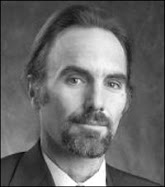 Former CNN anchor Bernard Shaw has a ‘Don Imus’ Moment at a Convention of Black Journalists
Former CNN anchor Bernard Shaw has a ‘Don Imus’ Moment at a Convention of Black JournalistsUPDATE: See Thomas Lifson's comments on this post at The American Thinker.
By David Paulin
Not long before he retired as one of CNN’s star anchors, Bernard Shaw used to pass me in the hallways of CNN in
So imagine my surprise to learn that Shaw was in fact a closet bigot. It’s the only conclusion I can draw from remarks that the retired 67-year-old CNN star made recently when accepting a lifetime achievement award from the National Association of Black Journalists (NABJ) at Bally’s hotel in
Perhaps Shaw just got caught up in the spirit of the NABJ, which essentially has a one-track agenda: “Diversity.” Addressing the group, Shaw issued a warning to the main villain of the post-modern left: white males. He declared, “Beyond this ballroom tonight, white males – wake up. Globally, you are an island speck in an ocean of color. The reins of power will weaken and so will your grip — if you do not faithfully support our nation's greatest strength, diversity.”
Shaw was one of CNN’s original anchors when the cable network started in 1980. Watching him over the years, I was undoubtedly like millions of other Americans: I never saw him as a “black journalist.”
I saw him only as a journalist.
Shaw’s remarks must be considered in a certain context. Once upon a time, diversity policies seemed quite noble. They were supposed to remedy past racial injustices; to bring the country together. But in our post-modern era, diversity has become something else – a socially acceptable form of racism. And let’s face it; Shaw’s comments were racist in effect if not intent – to paraphrase former Harvard President Lawrence Summers’ famous remarks about anti-Semitism in academia. Imagine the outrage if Walter Cronkite made similar comments about black Americans at a convention that was limited to fellow white journalists?
In recent years, major news organizations have become obsessed with diversity, an ideology with some central tenets. One is that “racist” barriers are keeping blacks and Hispanics out of editorial positions.
Another tenet is that the racial and ethnic makeup of newsrooms must mirror the makeup of the local community, state, or even the nation. Otherwise, discrimination exists. Lacking court verdicts or lawsuits over alleged newsroom discrimination, this is the most that diversity advocates can muster when making the case for racism in the newsroom.
And some diversity advocates make a remarkably ludicrous claim, one that demeans Americans of all colors. They contend that African-American and Hispanic-American reporters are best qualified to write about members of their respective racial and ethnic groups.
It’s sad that Bernard Shaw lends himself to this madness. Whether or not you liked him, you had to give him credit: He had talent and quiet dignity. What’s more, if any color barriers even existed in newsrooms in the hip 1960s, when Shaw started his career, he easily transcended them. He did this on his merits – not because of a free pass he got because of his skin color.
Apart from Shaw’s racially charged comments, the veteran journalist ignores reality. Hiring managers have for years gone out of their way to hire minority journalists – even when it has meant hiring some not-so-qualified people such as Jason Blair, whose name is synonymous with scandal at The New York Times.
Ironically, the noble ideology of diversity has undermined newsroom meritocracy in a particular odious way. It has stifled the free flow of ideas in newsrooms, author William McGowan pointed out in his book “Coloring the News.” He wrote, “In a perverse Orwellian twist, instead of expanding the bandwidth of opinion, experience, and perspectives that are acknowledged in news coverage and commentary, diversity-oriented journalism has actually allowed a narrow multicultural orthodoxy to restrict debate just at the point when the discourse about our changing national identity needs to be robust, well-informed, and honest.”
Last year, popular trade journal Editor & Publisher (E&P) published a “Shoptalk” column of mine that questioned the diversity gospel that a journalism professor had put forth, a week earlier, in an E&P column on how to cover Hispanic America. My “protest” column, as E&P editor Greg Mitchell called it, provided a counterweight to the Alice in Wonderland logic and implicit racism coming from diversity advocates. In light of Shaw’s comments and many more like them, it is a worthwhile read for those who missed it:
SHOPTALK
Another Take on 'How to Cover Hispanic America’
Responding to a piece here last week: There's no denying that many newsrooms are indeed staffed mostly by "white folks who are mostly middle aged." But the solution is not to have only Hispanics cover Hispanics -- or fail to train them to cover other communities.
By David Paulin
AUSTIN, Tex. (March 10, 2006) -- When I was an idealistic teenager contemplating a journalism career in the 1970s, two things intrigued me about the journalists and writers whom I admired: their worldliness and commitment to fighting social inequities.
Sure, most of my role models were "white folks who were mostly middle-aged," to borrow a phrase used by Allan Richards in his recent Shoptalk column, “How to Cover Hispanic America – and Why.” But who could fault a guy who moved comfortably in any social situation: starting the day in a gritty inner-city area, interviewing a black or Hispanic cleaning lady about a murder, and then hours later having lunch with a corporate executive or elected official?
Some of the most popular books of that era were testament to such writers and journalists: Oscar Lewis’ opus on Mexican peasants, initially banned in Mexico; John Howard Griffin’s classic “Black Like Me,” the riveting expose on racism in the Jim Crow South, from the perspective of a middle-aged white guy posing as an Afro-American; Michael Harrington’s book exposing the nation's hidden poverty, “The Other America.”
You would never know such writers existed if you accept the world view put forth by Richards, chair of Florida International University's journalism program. According to Richards, the nation's newsrooms need to become much more “diverse," hiring far more Hispanic reporters to intelligently cover the nation's increasingly large Hispanic population.
Has Richards ever heard of the middle-aged white guys I mentioned earlier? Some of his arguments are unfounded. Others are bizarre.
Claiming Hispanics are discriminated against in the nation's newsrooms, he writes: “I have watched many young and talented Hispanic journalism students confront ‘whiteness’ in the newsroom, as they struggled to crack the color and culture barrier and work in the mainstream media.”
Color and culture barriers in 2006? That's a serious charge; and not surprisingly, Richards cites no evidence to support it. But if he indeed knows of such instances of discrimination, he should illuminate E&P's readers with examples. Moreover, he should report such illegal discrimination to the Federal authorities.
Richards also claims that nationwide “barriers” confronting Hispanic journalists have made it “problematic” for them to land jobs outside South Florida. Only a few "lone pioneers," he observes, have gotten jobs in places "not known for diversity."
I've read similar complaints over the years. But they had nothing to do with Richards' claims of “barriers” blocking Hispanic employment. Rather, it was because some of Miami's Hispanics, having grown up in an insular Hispanic environment, simply lacked the confidence to follow the examples of, say, an Oscar Lewis, John Howard Griffin, or Michael Harrington -- and go out and interact with milieus and cultures other than their own. Perhaps their language skills were simply not up to par.
Offering up a truly bizarre anecdote, Richards attempts to explain the “complexities” of varied Hispanic communities – and need for specialized reporting to cover them. He cites the case of a Mexican-American reporter at a Florida paper. Sent out to cover a Venezuelan expatriate community, he failed miserably. Richards quotes the paper's editor as saying: “Biggest mistake we made…it was like apples covering oranges…Same language, very different culture.”
This is astounding. If this reporter was indeed competent – possessed of intellectual curiosity, a certain degree of empathy, and having good interview skills – how is it that he was unable to report on people with whom he shared a common language? Is Richards suggesting that the editor should have sent out a Venezuelan-American reporter to cover an expatriate Venezuelan community?
Richards' claims to the contrary, I have not noticed any “cultural divide” in newsrooms holding back Hispanic journalists. I have seen just the opposite. Thanks to a near obsession in some newsrooms on multiculturalism and affirmative action, hiring managers over the years have based decisions on whom to hire, in part, on race and ethnicity, not necessarily merit. (Just take a look at the “diversity” section of the journalism job board, Journalismjobs.com, which often lists a particular job both under the diversity section and the general section.) Viewed from another perspective, what in fact has been occurring is that qualified white candidates sometimes lose out because of their skin color; not an issue Richards addresses.
Indeed, I have been amazed over the years at how some minority journalists zoomed up the career ladder, obtaining prized internships and a foot in the door at prestige papers, even though their qualifications were not as good as white applicants.
There's no denying, to be sure, that many newsrooms are indeed staffed mostly by “white folks who are mostly middle aged.” But are any pathologies really at work here? I doubt it.
Author's Note:
Allan Richards got the final say on the issue of how to cover Hispanic America, with a second column, “Debate Over Covering ‘Hispanic America’ Continues.” The E&P article is available to subscribers.







